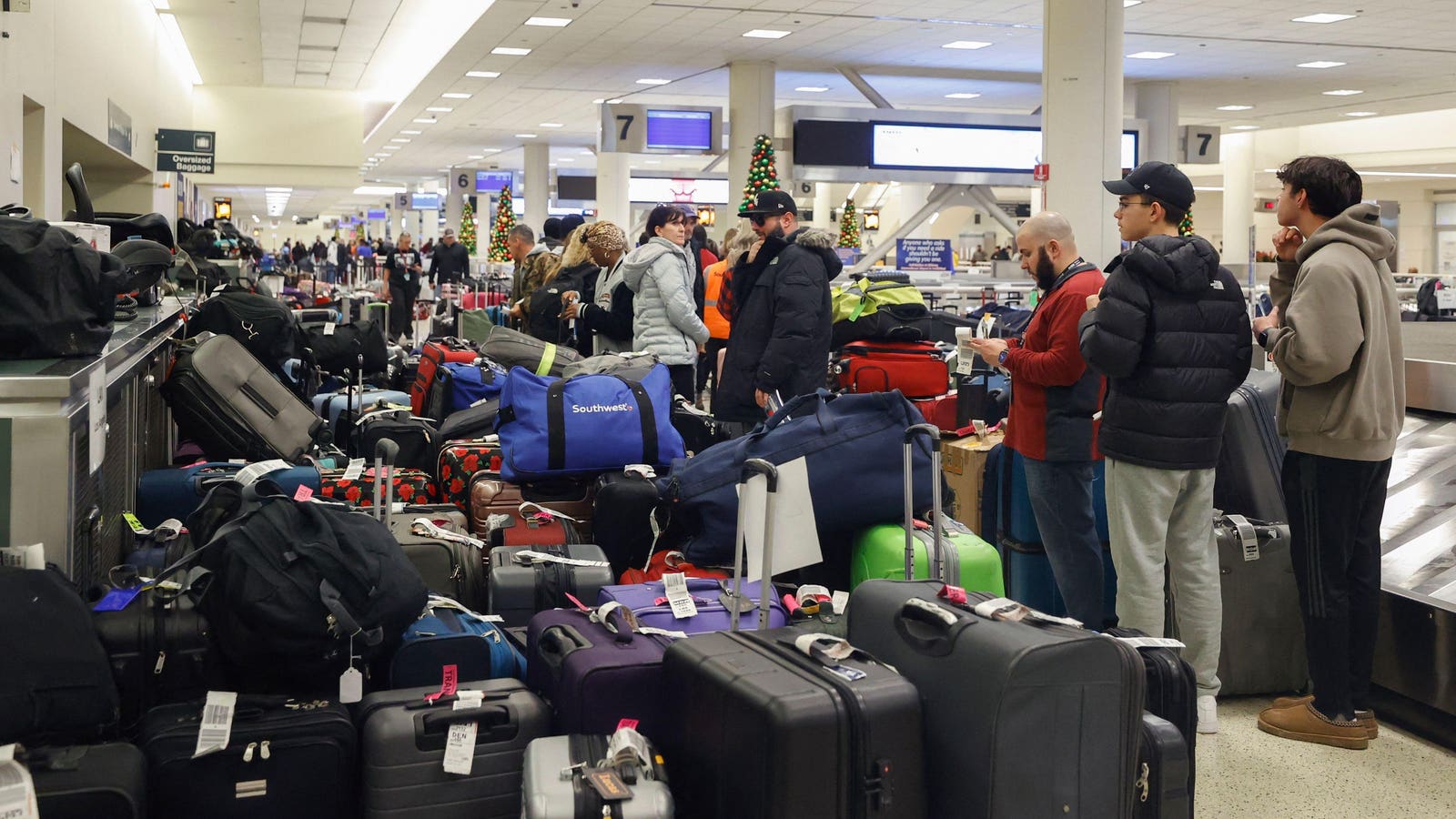Stranded Southwest Airlines passengers looks for their luggage in the baggage claim area at Chicago … [+]
For years, airlines seemed to be in a race to the bottom when it came to customer experience. They packed more seats onto planes and added fees for everything from checked bags to seat selection. And, many practices related to changes, cancellation, delayed bags, and more seemed to favor the airlines over flyers. 2024 regulations from the Biden-Harris Administration and the Department of Transportation (DOT) could help alleviate some of these pain points.
The new rules, many of which go into effect on October 28, 2024, are designed to give passengers more leverage when things go wrong. For example, airlines will be required to issue refunds for canceled flights, even if the tickets were previously non-refundable. The DOT will also require airlines to clearly disclose baggage fees and other optional charges upfront.
Mario Matulich, President of Customer Management Practice, finds the DOT regulations going into … [+]
“The rules that have come down are very much intuitive. I think they’re absolutely needed,” says Mario Matulich, president of Customer Management Practice, in a recent interview. CMP
These changes could have a similar impact to regulations that cracked down on involuntary bumping from flights. While overbooking and “bumping” ticketed passengers used to be rampant, it’s now relatively rare for flyers to be denied boarding against their will.
Proposed rules also include provisions designed to make life easier for families traveling with young children. Airlines would be prohibited from charging extra fees to ensure that children 13 and under can sit with a parent or adult companion. In the past, some airlines charged as much as $50 per seat for this service.
Will The DOT Rules Affect Airlines Differently?
Current and proposed DOT rules apply equally to all major airlines. But some airlines may be better positioned to adapt than others.
“I think you’ll see some variations across the airlines,” says Matulich. “I think some that have already invested in the digital foundation… will be a bit more advanced on some of these things.”
Southwest Airlines, for example, is investing heavily to improve its data infrastructure after its holiday meltdown last year. But, some experts say that may not be enough, citing the firm’s traditional reluctance to prioritize technology spending.
Will Airlines Compete on Customer Experience, Not Just Price?
“CX is an interesting competitive battleground for every industry,” says Matulich. “We’re starting to level the playing field here a bit.”
One indicator that the customer experience battle is heating up came from United Airlines. Earlier this month, they announced that all aircraft would get upgraded WiFi from Elon Musk’s Starlink and that it would be free for all passengers. It’s a shocking reversal from previous standard practice at most major airlines of offering amenities as a la carte paid options.
The DOT’s “Airline Customer Service Dashboard”
The DOT has created an easy way for flyers to compare airline practices for various aspects of customer service.
Partial view of the DOT Airline Customer Service Dashboard as of 9/30/24
The DOT Airline Customer Service Dashboard shows, for example, which airlines will rebook passengers on a competitor’s flight if their own flight is delayed or canceled, and which airlines will provide meal vouchers or hotel accommodations to stranded passengers. This information can help consumers make more informed choices about which airlines to fly.
Will DOT Penalties Drive Change?
History indicates that when inconveniencing customers results in serious fines, airlines minimize those hits to profitability by improving operations. When was the last time you saw a passenger involuntarily denied boarding because the flight was overbooked?
The DOT says they issued nearly $170 million in penalties against airlines for consumer protection violations since President Biden took office, compared to just $70 million in the preceding four years.
In 2023, the flight cancellation rate in the U.S. was a record low at under 1.2%. That was the lowest rate in over 10 years despite air travel setting new records. While it’s impossible to say how increased fines, or the threat of those fines, affected cancellations, they were likely one factor in airline decision-making.
Most airlines want to deliver a customer experience that brings flyers back. They may dislike regulations and fines, but in the long run those penalties nudge them in the direction they know they need to go.

